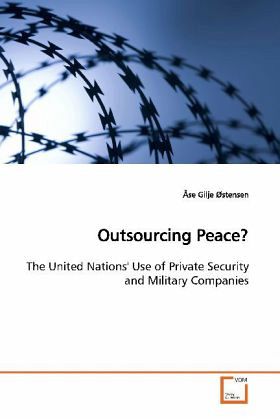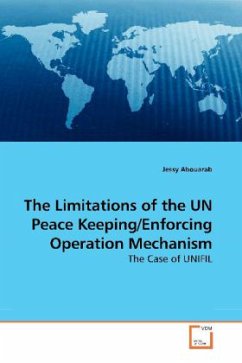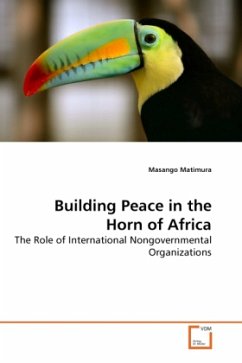
Outsourcing Peace?
The United Nations' Use of Private Security and Military Companies
Versandkostenfrei!
Versandfertig in 6-10 Tagen
39,99 €
inkl. MwSt.

PAYBACK Punkte
20 °P sammeln!
Private companies provide security and militaryservices to states, international organizations,international non-governmental organizations, andindividuals. This thesis addresses the UnitedNation s use of private security and militarycompanies (PSCs and PMCs). The study looks into thecharacteristics of this practice and subsequentlyprovides some explanations for the pattern andrationale thereof. The study suggests bothradicalized external operating environments andinternal organizational capacities have contributedto increasing the demand for private securityservices. On the supply side, the a...
Private companies provide security and military
services to states, international organizations,
international non-governmental organizations, and
individuals. This thesis addresses the United
Nation s use of private security and military
companies (PSCs and PMCs). The study looks into the
characteristics of this practice and subsequently
provides some explanations for the pattern and
rationale thereof. The study suggests both
radicalized external operating environments and
internal organizational capacities have contributed
to increasing the demand for private security
services. On the supply side, the analysis indicates
that comprehensive image refinement efforts on part
of the industry have added to the UN deploying these
companies. This thesis thus argues that the UN s use
of PSCs and PMCs can be explained by the UN
simultaneously facing more difficult premises for its
operations, enhanced expectations for action, and
proportionally deteriorated internal capacity. The
private security and military industry on its part
has detected the UN potential market and strive to
accommodate to the demands of this potentially very
profitable market.
services to states, international organizations,
international non-governmental organizations, and
individuals. This thesis addresses the United
Nation s use of private security and military
companies (PSCs and PMCs). The study looks into the
characteristics of this practice and subsequently
provides some explanations for the pattern and
rationale thereof. The study suggests both
radicalized external operating environments and
internal organizational capacities have contributed
to increasing the demand for private security
services. On the supply side, the analysis indicates
that comprehensive image refinement efforts on part
of the industry have added to the UN deploying these
companies. This thesis thus argues that the UN s use
of PSCs and PMCs can be explained by the UN
simultaneously facing more difficult premises for its
operations, enhanced expectations for action, and
proportionally deteriorated internal capacity. The
private security and military industry on its part
has detected the UN potential market and strive to
accommodate to the demands of this potentially very
profitable market.












